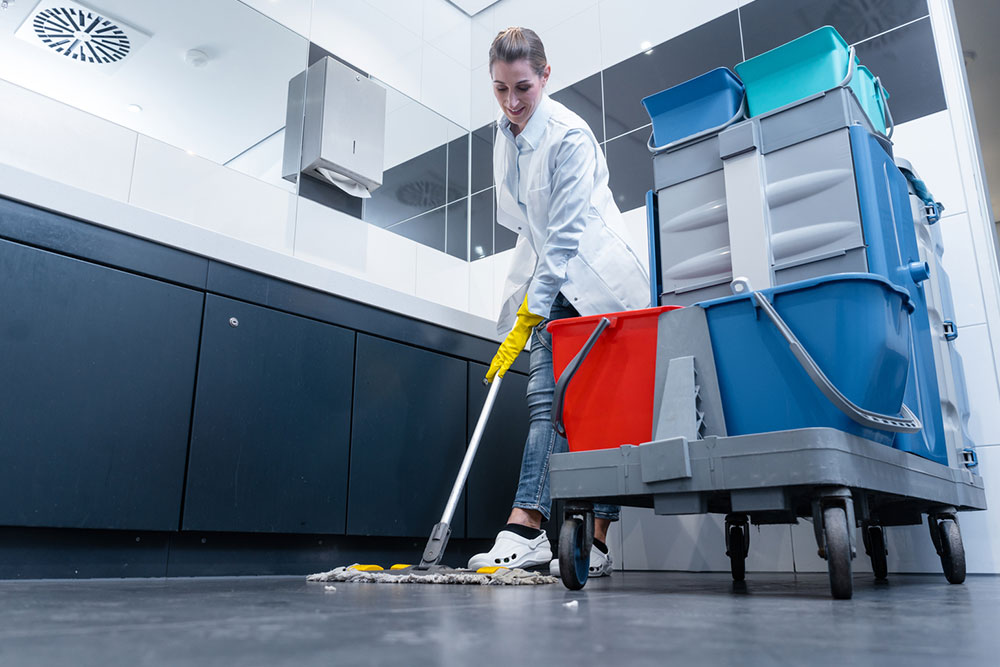11 common toilet cleaning mistakes to avoid

Maintaining a clean and hygienic toilet is essential for the health and well-being of any household. However, many people tend to make some common toilet cleaning mistakes that can compromise cleanliness and sanitation. One can learn from the common errors and follow easy tips to ensure a toilet remains sparkling clean and free of germs. By steering clear of these mistakes, one can achieve a cleaner and healthier environment.
Using the wrong cleaning products
One of the most common toilet cleaning mistakes is using inappropriate cleaning products. Harsh chemicals or abrasive scouring pads can damage the toilet’s surface, including the porcelain or plastic components. These products may also release harmful fumes that can be detrimental to one’s health. Instead, one should opt for gentle and environmentally friendly cleaning solutions. For instance, a mix of baking soda and white vinegar is a fantastic alternative. These natural ingredients can break down stains and disinfect the toilet effectively without causing harm to the toilet or the environment.
Neglecting regular cleaning
Waiting too long between cleaning sessions can lead to accumulation of stains, mineral deposits, and germs, making it difficult to maintain a clean toilet. To avoid this mistake, it is important to prepare a cleaning schedule and stick to it. Consistent cleaning, ideally at least once a week, will help prevent stubborn stains and odors from taking hold.
Overlooking the toilet’s exterior
While most people are diligent about cleaning the toilet bowl’s interior, they often overlook the exterior. The toilet’s exterior, including the handle and surrounding area, can harbor harmful bacteria and germs. So, one should be sure to clean the entire toilet regularly. It helps to use disinfecting wipes or a cloth soaked in one’s preferred cleaning solution to wipe down all surfaces, paying close attention to the handle and other high-touch areas.
Not cleaning the toilet brush
Cleaning the toilet brush after use is a frequently overlooked step in toilet maintenance. After scrubbing the toilet bowl, many people place the brush back in its holder without rinsing or cleaning it, allowing germs to fester. Cleaning the toilet brush thoroughly after each use helps prevent germ accumulation. One should first rinse the toilet bowl to remove any residue, followed by cleaning the toilet and brush with hot, soapy water before letting them air dry. This simple step can help prevent the spread of bacteria in the bathroom.
Flushing with the lid open
Flushing the toilet with the lid open is a common habit for many, but it is a big mistake to avoid. When the toilet is flushed, a fine mist of water and particles can be propelled into the air, potentially spreading germs and bacteria throughout the bathroom. To minimize this risk, one should always flush the toilet with the lid closed. This simple adjustment can help maintain a cleaner and more hygienic bathroom environment.
Scrubbing too aggressively
While scrubbing the toilet to remove stains and dirt is essential, scrubbing it vigorously can lead to damage. Excessive pressure or the use of abrasive materials can scratch the toilet’s surface, making it more challenging to keep it clean in the long run. Instead, it is advisable to use a gentle but consistent scrubbing motion with a mild, non-abrasive cleaning solution for the best results.
Ignoring hard water stains
Hard water stains are common in many households, and ignoring them is a significant toilet cleaning mistake to avoid. These stubborn mineral deposits can accumulate in the toilet bowl, making it appear dirty, even if cleaned regularly. To tackle hard water stains effectively, one should use a specialized toilet bowl cleaner designed to dissolve mineral deposits. Alternatively, one can use a mixture of vinegar and baking soda, allowing it to sit in the bowl for a few hours before scrubbing.
Not ventilating the bathroom
Ventilation is often overlooked when it comes to toilet cleaning. Without proper airflow, moisture can accumulate in the bathroom, creating an environment where mold and mildew can thrive. To avoid this mistake, one should ensure that the bathroom is adequately ventilated, using exhaust fans or open windows to let fresh air circulate. Exhaust fans help prevent mold and mildew growth and maintain a cleaner bathroom.
Forgetting to replace toilet brushes
Toilet brushes have a limited lifespan, and using them beyond their prime is a mistake many people make. Over time, toilet brushes can become worn out, damaged, and ineffective at cleaning, making one’s efforts less efficient. So, it is important to check the toilet brush regularly. If the bristles are frayed, or the brush is in poor condition, it is time for a replacement. Investing in a new toilet brush is a small expense that can significantly improve the toilet cleaning routine.
Not cleaning toilet accessories
When it comes to cleaning, toilet accessories, such as toilet seat hinges, are often neglected. These areas can collect dirt, grime, and germs, compromising the overall cleanliness of the toilet. To prevent this oversight, one should make it a point to clean all toilet accessories regularly, wiping down the hinges, screws, and any other movable parts with a disinfecting solution to ensure a hygienic environment.
Ignoring regular maintenance
This oversight can lead to minor issues escalating into costly and inconvenient plumbing problems. Leaky seals, loose bolts, or malfunctioning fill valves are some common issues that can arise when regular maintenance is ignored. So, it is essential to conduct routine checks on one’s toilet, tighten loose bolts, inspect seals for leaks, and ensure all components function correctly.
An unclean toilet is the breeding point for germ and bacterial infections, such as influenza, UTIs, and intestinal worm infections. Thus, it is important to follow basic hygiene practices, avoid common toilet cleaning mistakes, and use good-quality cleaning solutions and equipment to ensure a hygienic toilet.


